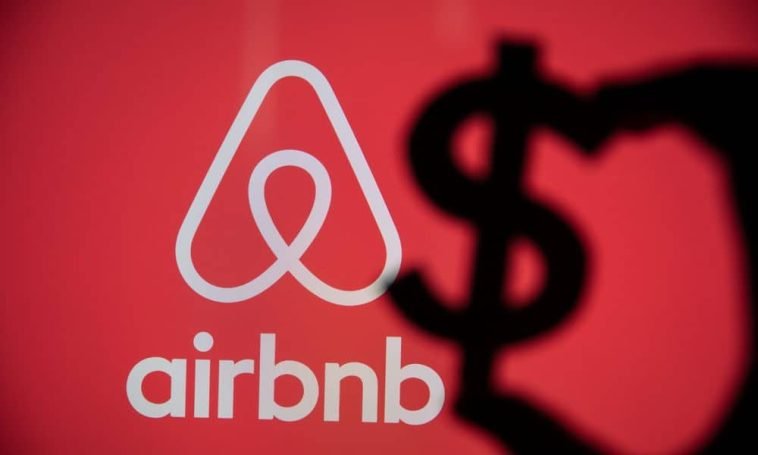Introduction.
Breaking into the world of Airbnb doesn’t have to mean owning a property.
With today’s fast-evolving sharing economy, there are plenty of ways to make money from Airbnb even if you don’t have your own house or apartment to list.
By leveraging other people’s properties and navigating short-term rental management, you can create an income stream that’s both flexible and profitable.
Let’s explore some key strategies to make Airbnb work for you without the huge upfront investment of buying real estate.
How Do I Make Money on Airbnb Without Owning Property?
You might be wondering: how does someone run an Airbnb business if they don’t own a place to rent out?
The answer is in creative, low-cost strategies like rental arbitrage, co-hosting, property management, and Airbnb experiences.
Each of these options has its steps, benefits, and challenges, so let’s look at how each one works, and what might be the best fit for you.
1. Rental Arbitrage.
Rental arbitrage is one of the most popular ways to make money on Airbnb without owning a property.
Here’s how it works: You rent a property long-term, and with permission from the landlord, you sublet it as a short-term rental on Airbnb.
It’s essentially making money from the difference between what you pay in rent and what you earn from short-term stays.
- Steps to Start with Rental Arbitrage
- Find a Property: Look for a property in a high-demand area where short-term rentals are profitable. Cities with strong tourist appeal are ideal.
- Negotiate with the Landlord: Explain your plans for rental arbitrage and assure them of responsible guest screening and maintenance.
- Check Local Laws: Make sure short-term rentals are legal in your area, as some cities have specific regulations.
- Furnish and Set Up the Space: Since guests expect amenities, you’ll need to furnish the property and provide basic amenities, which could cost a few thousand dollars upfront.
- Earnings Potential: Some Airbnb rental arbitrage hosts report monthly profits ranging from $500 to over $1,500 per unit, depending on location and occupancy rates.
2. Co-Hosting.
Co-hosting is another way to get involved in Airbnb without owning property. As a co-host, you assist the property owner in managing their listing, handling bookings, guest communication, and more.
In return, you earn a percentage of the booking fee, typically ranging from 10-20%.
- Steps to Become a Co-Host
- Connect with Hosts: Look for property owners who may need help managing their listing. Networking, online forums, or platforms like Airbnb Community Center are great starting points.
- Agree on Responsibilities and Pay: Establish a clear contract outlining your responsibilities—cleaning, guest check-in/out, handling guest issues—and agree on a percentage or fixed rate.
- Stay on Top of Guest Satisfaction: Good reviews drive future bookings, so ensuring guest satisfaction will ultimately boost both your earnings and the host’s.
- Earnings Potential: Co-hosting can be a lower-risk way to start, with potential monthly earnings of $200-$500+ per property based on workload and booking volume.
3. Property Management for Airbnb.
With this approach, you essentially act as a full-service manager for multiple properties, often taking a more hands-on role.
As an Airbnb property manager, you can earn a significant income by handling everything from guest communication to property maintenance and pricing strategies.
- Steps to Start Airbnb Property Management
- Build a Portfolio and Network: Starting with friends or family with rental properties can help build credibility. Use your experience to attract new clients.
- Get Familiar with Short-Term Rental Platforms: Being savvy with platforms like Airbnb, Vrbo, and Booking.com is essential, as each has different features and best practices.
- Manage Cleaners and Maintenance Teams: You’ll likely need a network of cleaners and maintenance contacts for smooth operations.
- Earnings Potential: Property managers typically earn around 15-25% of each booking. Depending on the number of properties managed, income can vary from part-time earnings to a full-time career income of several thousand dollars per month.
4. Offering Airbnb Experiences.
Airbnb Experiences offers an alternative to property-based income. You don’t need any real estate to run an experience; instead, you provide guided activities, workshops, or tours in your area that guests can book as part of their travel plans.
- Steps to Create an Airbnb Experience
- Design an Activity: Whether it’s a local food tour, an art workshop, or a nature hike, pick an activity you’re passionate about and knowledgeable in.
- Set Up on Airbnb Experiences: List your experience on Airbnb with an engaging description and photos, highlighting what makes your offering unique.
- Ensure High-Quality Experiences: Airbnb guests leave reviews, and maintaining a high rating will attract more bookings.
- Earnings Potential: Airbnb experiences can generate income anywhere from $50 to $500+ per session, depending on location, activity, and the number of guests.
Pros and Cons of Starting an Airbnb Business Without Owning Property
| Pros | Cons |
|---|---|
| Low Upfront Investment: No mortgage or property down payment is required. | Legal Restrictions: Some cities have strict regulations on short-term rentals. |
| Flexible Earnings: Income potential with lower financial risk. | Landlord Approval Needed: Rental arbitrage requires landlord permission. |
| Scalable: You can manage multiple properties and expand. | Seasonal Demand: Short-term rental demand can fluctuate. |
| Less Financial Commitment: If the market changes, you can move on easily. | Setup Costs: Some methods, like rental arbitrage, still have furniture and setup expenses. |
FAQ
Q1: Is rental arbitrage legal everywhere?
- No, it varies by city. Many places have strict short-term rental laws, so always check local regulations first.
Q2: How much should I budget for furnishing a rental arbitrage property?
- A fully furnished apartment could cost anywhere from $2,000 to $7,000 or more, depending on the quality and extent of furnishings.
Q3: Do I need a license to manage Airbnb properties?
- Some locations require short-term rental licenses or permits. Check with local authorities to be sure.
Q4: What percentage of revenue can I expect as a co-host?
- Typically, co-hosts earn 10-20% of each booking, though rates may vary based on the services provided.
Q5: How do I find property owners who need a co-host or property manager?
- Try networking within Airbnb host groups, reaching out in online forums, or connecting with local real estate agents who work with landlords.
Conclusion
Getting into Airbnb without owning property offers plenty of opportunities for those willing to think outside the box.
Whether you’re leaning toward rental arbitrage, co-hosting, property management, or even crafting unique Airbnb experiences, there’s a path to suit different budgets, interests, and risk levels.
What would your ideal Airbnb side hustle look like?





GIPHY App Key not set. Please check settings